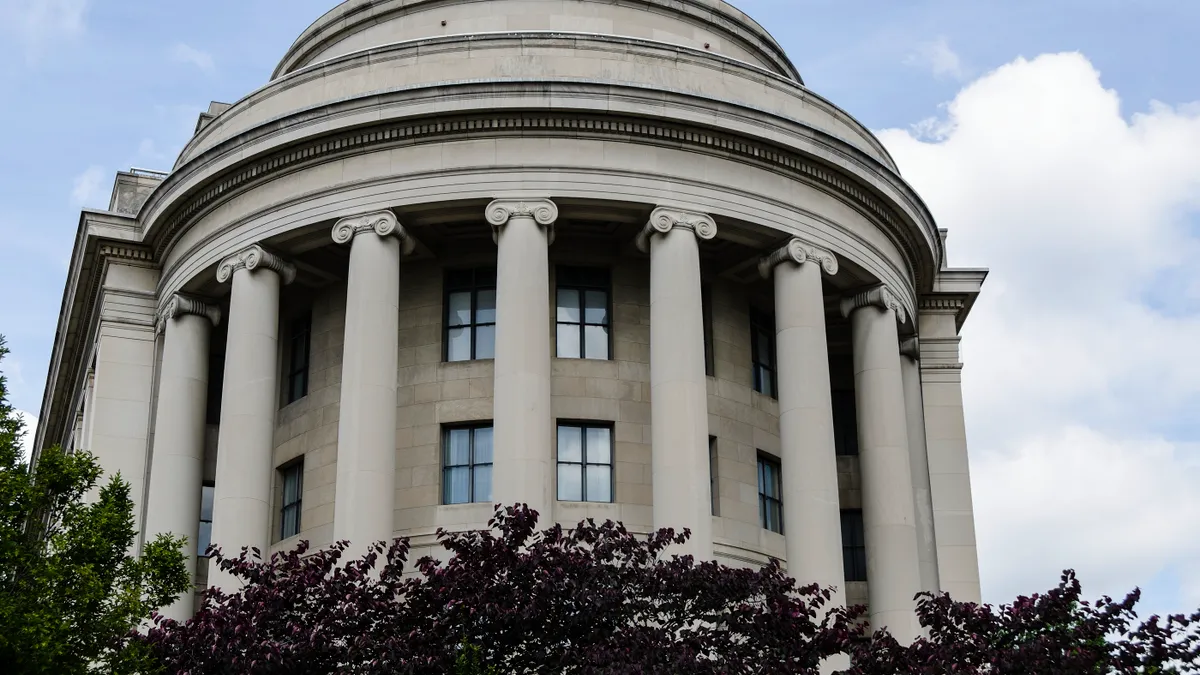The Federal Trade Commission’s effort to curb the ambitions of private equity in serial acquisitions hit a snag when a federal district court dismissed a PE firm from an antitrust lawsuit that the agency filed against it, while allowing the lawsuit to go forward for the operating company the firm created.
Although the firm, Welsh Carson, created and maintains a stake in the operating company, U.S. Anesthesia Partners, it’s no longer majority owner and shouldn’t be a party in the lawsuit.
“The FTC does not cite any authority for the proposition that receiving profits from an entity that may be violating antitrust laws is itself a violation of antitrust laws,” Judge Kenneth Hoyt of the Southern District of Texas says in the May 13 ruling.
Nor is there any evidence the firm, unlike the operating company, is poised to violate antitrust law going forward.
“The FTC insists that Welsh Carson’s having the ‘blueprints, finances, and personnel to continue this scheme’ satisfy [the] ‘about to violate’ standard,” the judge says. “But the mere capacity to do something does not meet the requirement that the thing is likely to recur.”
The PE firm’s success in getting the lawsuit dismissed didn’t extend to its operating company. The judge says the case against USAP should proceed.
“The FTC has plausibly alleged acquisitions resulting in higher prices for consumers, along with a market allocation and price-setting scheme,” the judge says. “It would be premature to dismiss these claims at this stage.”
Texas roll-up
USAP is accused of engaging in a series of acquisitions that have enabled it to exert control over the market for in-hospital anesthesia services in Texas. The company is alleged to have a market penetration of 70% each in Houston and Dallas, 52% in Austin, and big positions in other parts of the state.
In its complaint, the FTC calls Welsh Carson the mastermind of the company. It launched, funded and staffed the company in 2012 and used $100 million of its own money for USAP to make the acquisition that got the roll-up started. The company has since made at least 15 acquisitions, giving it a position in the state that’s enabled it to set prices where it wants them.
“Welsh Carson … developed the overarching strategy to consolidate anesthesia markets, recognizing that doing so would yield market power and higher prices,” the FTC alleges. “Welsh Carson then carefully directed — and assisted — USAP in following through on the consolidation strategy.”
The firm has since sold much of its stake in the company. Its interest today is at 23% and it holds two of 14 board positions.
The FTC argues the firm’s shift to minority status doesn’t change anything.
“Welsh Carson continues to play a critical role in USAP’s anticompetitive conduct,” the agency says. “Welsh Carson personnel still regularly advise USAP on, and assist it with, acquisitions and insurer negotiations. [It also] continues to benefit handsomely from USAP’s supracompetitive prices, having received nearly $85 million in dividend payments between 2018 and 2020 (and over $350 million between 2012 and 2020). Nor does anything prevent Welsh Carson from re-upping its investment in USAP, retaking formal control of the company, and directing yet more anticompetitive acquisitions.”
The agency is leaning on Section 13(b) of the FTC Act to enjoin the company from continuing its practices. The provision allows the agency to seek an injunction if it has reason to believe any law the agency enforces is being violated or is about to be violated.
The laws that are being violated, the FTC says, are Section 5(a) of the FTC Act and Section 7 of the Clayton Act. Section 5 prohibits unfair or deceptive practices and Section 7 prohibits anticompetitive mergers.
Agency goals
By dismissing Welsh Carson from the lawsuit, the court could be taking some of the energy out of the FTC’s effort to hold private equity accountable for their operating companies’ anticompetitive actions.
The agency joined the Department of Justice last month in a call for consumers, workers and others to come forward with information on roll-ups — the acquisition strategy of choice for many PE firms — so they can determine if the serial acquisitions are violating competition laws.
“Serial acquisitions involve the same firm consolidating a fragmented market through a number of acquisitions, typically of many relatively small companies,” the agencies said in the call for information.
Private equity tends to be a big user of the roll-up strategy because if the deals are small enough to escape reporting under the Hart-Scott-Rodino premerger review process, the firms can operate under the radar while they consolidate markets.
“The Welsh Carson/USAP lawsuit is just one of a series of recent FTC and DOJ actions targeting private equity roll-ups,” attorneys at Fried, Frank, Harris, Shriver & Jacobson say in an analysis.
Roll-ups in the healthcare space, of which USAP’s 15-company buying spree in Texas would be a classic example, are particularly on the agencies’ radar screen. Earlier this year the FTC and DOJ worked with the Department of Health and Human Services to create a web portal for people to go to with information on serial acquisitions in that space.
“Firms investing in health care-related markets should be aware that federal and state agencies are looking out for serial acquisitions in the sector,” attorneys at Troutman Pepper say in an analysis of the Welsh Carson case.
The Texas ruling suggests the agencies face a hurdle in the courts as they move forward with their efforts to target private equity.



















